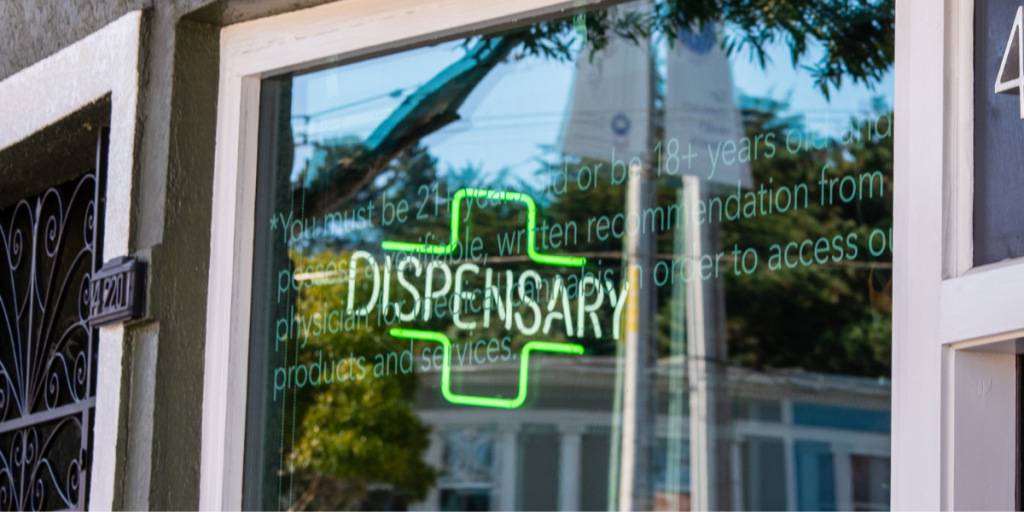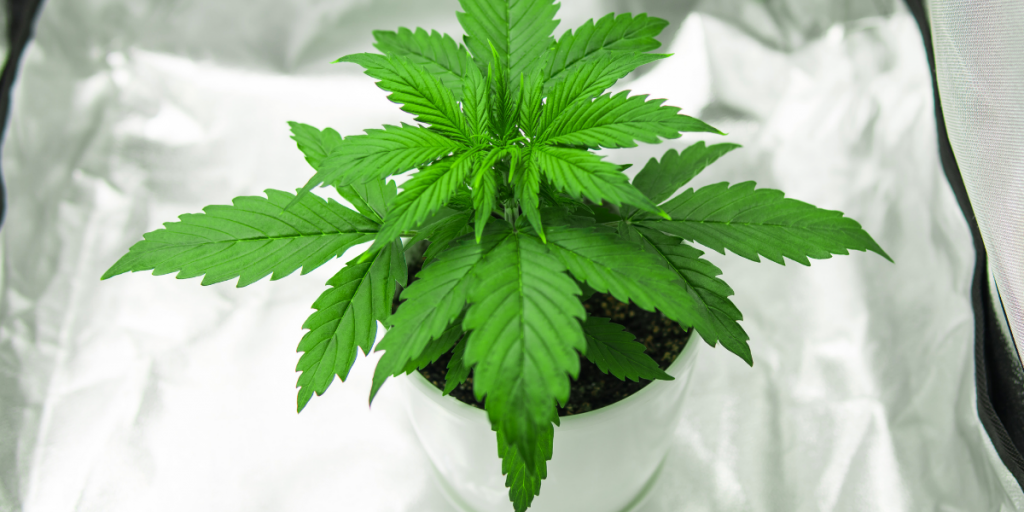
Pro-cannabis supporters in Arizona are celebrating the legalization of adult-use (recreational). But buying cannabis in Arizona is going to be a waiting game. Health authorities will be creating new regulations for retail dispensaries. Issuing retail cannabis dispensary licenses, and cultivating to prepare for the increased consumer demand will take more time.
Voters started legalization in 1996 when voters approved the right to “prescribe” cannabis to patients. In 1996 the initiative was rejected by voters but approved again on a ballot measure in 1998.
The Arizona Department of Health Services has managed the medical marijuana program since 2010. The Arizona Medical Marijuana Act (AMMA) was won with a 50.13% vote on November 2, 2010. On November 3, 2020, Arizona voters approved Proposition 207 to legalize adult-use (recreational) cannabis.
The legalization of medical cannabis for patients in Arizona was an uphill battle. With accommodations provided, but also contradictory restrictions. For instance, Arizona patients with ID cards can not only buy, but they can also home-grow cannabis. So can designated caregivers. But only if they live at least 25 miles from a registered medical marijuana dispensary.
AMMA passed a number of laws that limit the rights of patients to access medical marijuana. Some of the statutes rolled back protections that patients have in other states. For instance, HB 2541 allows an Arizona employer to fire a patient on another co-worker’s word (or whistleblowing). Or a positive drug test. And HB 2346 passed in 2015 omitted workers’ compensation benefits from providing reimbursement for medical cannabis for injured workers.
In 2012, HB 2349 outlawed the use of medical cannabis at school. This included elementary, middle, high school, and colleges. Students who were registered patients in the Arizona medical marijuana program were not permitted to possess or dose medical cannabis on school grounds. Caregivers for minors were also not allowed to administer medical cannabis on (or near) school property.
As legislative amendments were slow-going, the fight for adult-use started. If there were going to be burdensome restrictions to accommodate patients, a less restricted adult-use program would solve it. It is a strategy that often works also to expand qualifying conditions for patients.

While pro-cannabis supporters in Arizona are celebrating the legalization of medical marijuana and adult-use (recreational), buying cannabis will be a waiting game. Health authorities will be creating new regulations for retail dispensaries. A process of establishing new legislation for licensing requirements, establishing limits to the number of licenses that will be issued for dispensaries, cultivators, and cannabis ancillary services.
At the time of writing, ballots were still being verified in the state of Arizona. By December 3, 2020, it is expected that the final tally of votes will be complete and legally registered. That’s when state legislators will know for sure if recreational cannabis has carried by majority vote. The margin is close, but it appears certain that most state voters have approved the legalization of adult-use in Arizona.
Arizona residents can expect adult-use to be legalized by December 3, 2020, which means that possession of cannabis will not result in misdemeanor charges for personal use quantities. The summary of possession limits in the state right now for adult use is a maximum of one ounce of marijuana, with no more than 5 grams allowed for distillates or concentrates.
Existing medical cannabis dispensaries will be the first to apply for adult-use sales licenses. Then new dispensaries will be allowed to apply for permits to sell to adults aged twenty-one (21) years or older.
If adult-use marijuana is legalized in Arizona, will residents still want to get a medical card? Essentially, a medical card would not be required to purchase cannabis in the state. However, there are several benefits to having a medical card to consider.
Retail sales of adult-use (recreational) marijuana may not be available until March 2021. This is an estimate at best. For states that legalize medical and recreational marijuana, there must be time to prepare for the shift in supply and demand. States like Illinois experienced a shortage of cannabis products for patients when adult-use was legalized.
If you have a medical card in Arizona, you won’t have to wait until March of 2021 to purchase marijuana legally. As your health conditions (and prescription medications) may change over time, a doctor-supervised treatment plan can be valuable.
Arizona will apply a 16% excise tax on top of the state tax of 5.6% state tax on all cannabis products. That is a cumulative rate of 21.6% sales tax. On a monthly basis, that can add up to several hundreds of dollars of extra expense.
The average retail cost of an ounce of cannabis right now in Arizona is approximately $296.58 for high-quality cannabis and $232.55 for medium quality medical marijuana. On the high end, monthly taxes from dispensary purchases would be $65.06. An expense of $780.72 in excise and sales tax per year, for the legal limit of one ounce per month.

Residents in Arizona will be permitted to home-grow and process up to six plants per individual. A maximum of twelve (12) plants will be allowed in a home where two or more persons aged twenty-one (21) years or older live.
To serve almost 7.5 million residents, the state has only licensed 120 medical cannabis dispensaries. About 3% of the state population currently has a medical marijuana card. That means serving just over 218,361 patients, or 1,819 patients per dispensary.
MJBizDaily reported that medical marijuana dispensaries in Arizona sold 166,000 pounds of cannabis in 2019. That was a 34% increase from 124,000 pounds in 2018. Regarding the demographics of medical cannabis patients in Arizona, about 50% of registered patients are under forty years old. And 60% of medical cardholders are male. Approximately 90% of patients who received an Arizona medical card listed chronic pain as their primary qualifying medical condition.
Allowing legalized home cultivation is one strategy that dual adult-use and medically legalized states use to fight supply and demand problems. People are initially excited about the prospect of DIY growing at home for personal use. But cultivation can be expensive and time-consuming. And quality can vary.
The small percentage of Arizona residents who will home-grow help take some of the burdens off medical and adult-use licensed dispensaries. Inevitably the competitive cost of cannabis will come down as other dispensaries enter the market for both patients and recreational users.
Unlike many countries worldwide, consuming cannabis in public (even in a recreationally legalized state) remains prohibited. While legalized for consumption, the bylaws that protect people from secondhand smoke and fire hazards also apply to cannabis. You will not be able to smoke in a restaurant, bar, recreational venue, school (or anywhere near a school), hospital, doctor’s office, mall or retail store, etc.
This also includes smoking or consuming cannabis in a dispensary. Whether it is a medical or adult-use retail location. And the one place you don’t want to consume cannabis? On federal property. That includes state parks and recreational areas, federal government buildings and properties (the parking lot of the post office counts!), or traveling by air.
Arizona may be a legalized state, but federal laws regarding Schedule 1 drug use remain unchanged. Using a controlled substance on federal property can result in a felony offense. At home remains the best and safest choice.
An Arizona medical cannabis card will allow you to purchase marijuana right away (instead of waiting until March 2021). It will also save you money.
If you have one of the approved qualifying health conditions for a medical card, you can schedule an appointment with a certified physician for your evaluation. Telemedicine appointments are also available if you do not want to visit a doctor’s office in person.
The health evaluation is a simple process. Patients simply schedule an appointment with a health provider. Next, you will be required to provide recent health records (and a confirmation of your qualifying diagnosis) to the provider before your appointment. That will give the physician time to review your health history.
Suppose the Arizona doctor feels that medical marijuana may help you manage your symptoms and provide wellness benefits. In that case, the doctor will approve or recommend you to the Arizona medical marijuana program.
An application fee is also required, payable to the Arizona Department of Health Services. If approved, you will get your Arizona Medical Marijuana Identification Card and be authorized to visit and purchase cannabis at a licensed dispensary.
No Information on MarijuanaDoctors.Com should be used to diagnose, treat, prevent or cure any disease or condition. You can view our Full Disclaimer here.